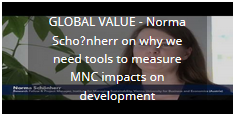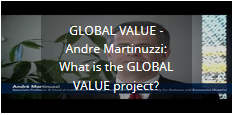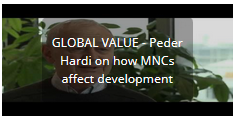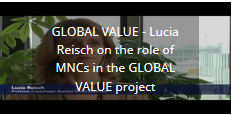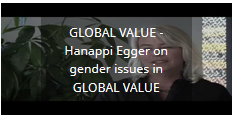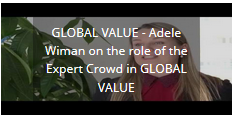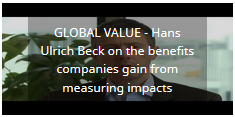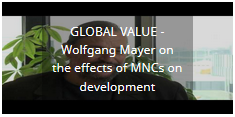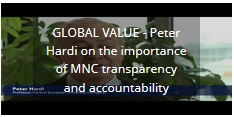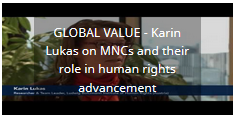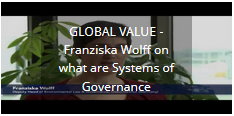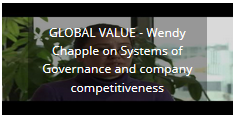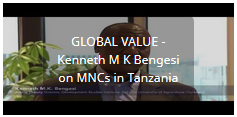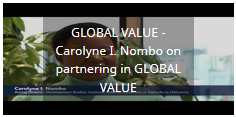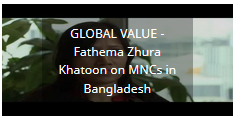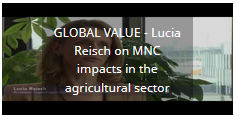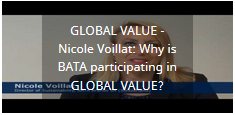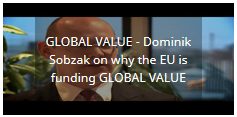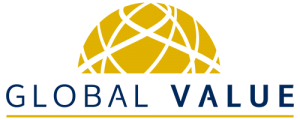
About GLOBAL VALUE
GLOBAL VALUE is one of the largest EU-funded research projects to date addressing the measurement and management of business impacts on global sustainable development. It aims to create knowledge, tools and resources that companies and their stakeholders can use to comprehensively assess and better manage their impacts. Launched in 2014, GLOBAL VALUE has been investigating how Multinational Corporations measure and manage their impacts on global sustainable development. The project also dealt with assessing how corporate activities are complementing or contradicting official development aid and shed light on how international competitiveness and responsible business practices can be mutually reinforced in developing countries.
The resulting GLOBAL VALUE toolkit will not only help Multinational Corporations to understand their impacts and improve their management, but will also support the policy community in refining the ways the private sector is engaged in global development efforts in the context of the Sustainable Development Goals (SDGs).
Eleven partners | three continents | three sectors
The project is implemented by the Institute for Managing Sustainability, together with 11 leading research institutions, civil society organisations and companies from Europe, Asia and Africa. Find out more about the project and watch videos of the project team answering your most pressing questions or take a look at the project consortium below.
Meet the partners
Vienna University of Economics and Business (Coordinator)

Institute for Managing Sustainability
The main objective of the Institute for Managing Sustainability is to contribute to the achievement of sustainable development at all societal levels (i.e. the individual, corporate, municipal, regional, national and international levels) by developing and applying scientific insight. In so doing, researchers combine theoretical and applied research in interdisciplinary research projects conducted by national and international teams.
Institute for Gender and Diversity in Organisations
Over the past decades, internationalization and changes in traditional social structures and gender roles have increased the amount of attention paid to gender relations and other aspects of human diversity, on a global scale. Aspects of diversity such as gender, ethnicity, class, religion, age, sexual orientation and alternative ways of life are top issues on the academic and professional agenda, especially in the context of inequality and discrimination.
Oeko-Institut e.V. (Institute for Applied Ecology)
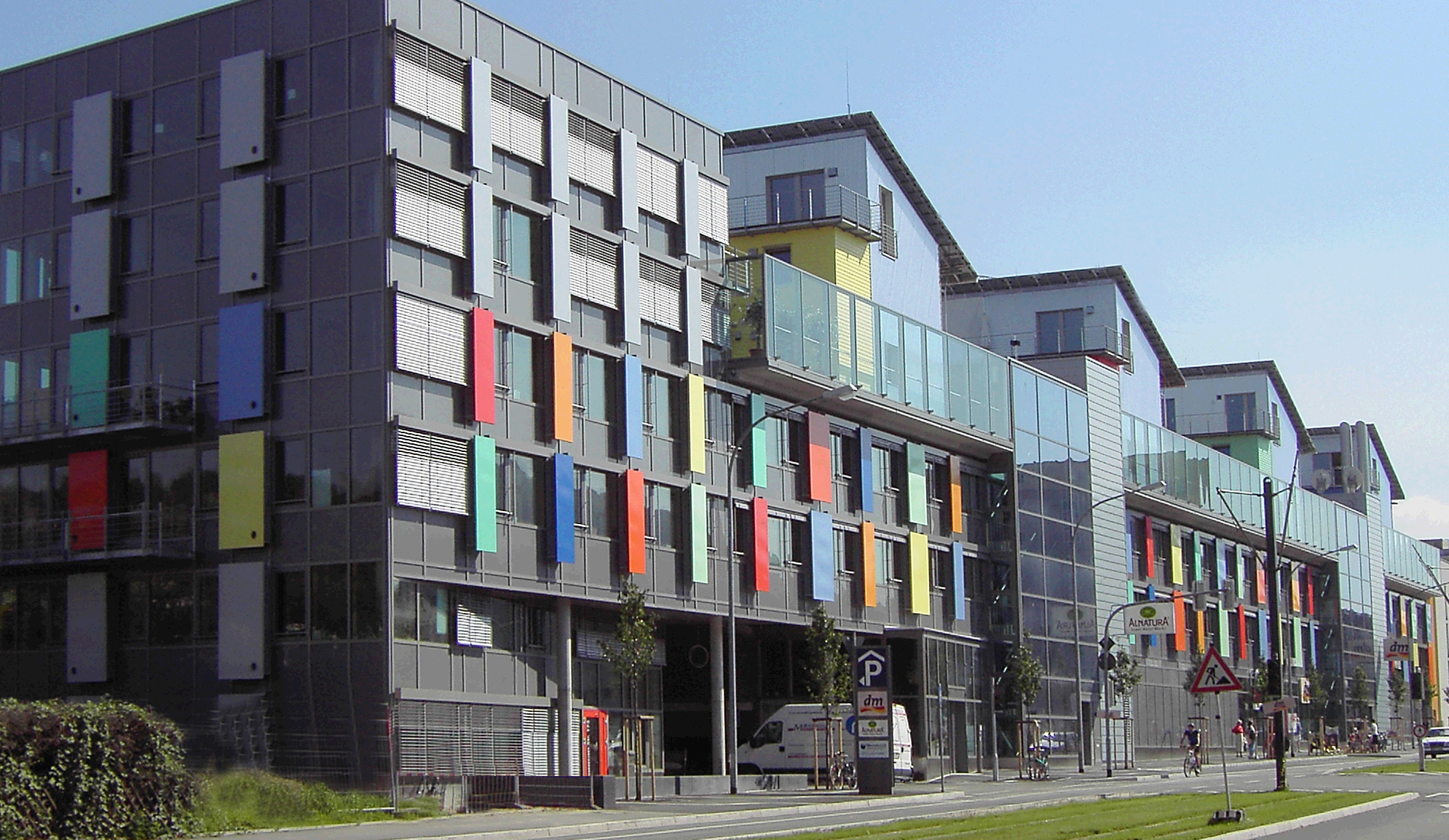
The Oeko-Institut is a leading European research and consultancy institute working for a sustainable future. Employing more than 145 staff, the Oeko-Institut yet is a non-profit association funded through its projects. The Oeko-Institut aims to expand on findings from the world of academic science and translate these into practice, to foster carefully considered action among policymakers, industry leaders and members of civil society.
Copenhagen Business School
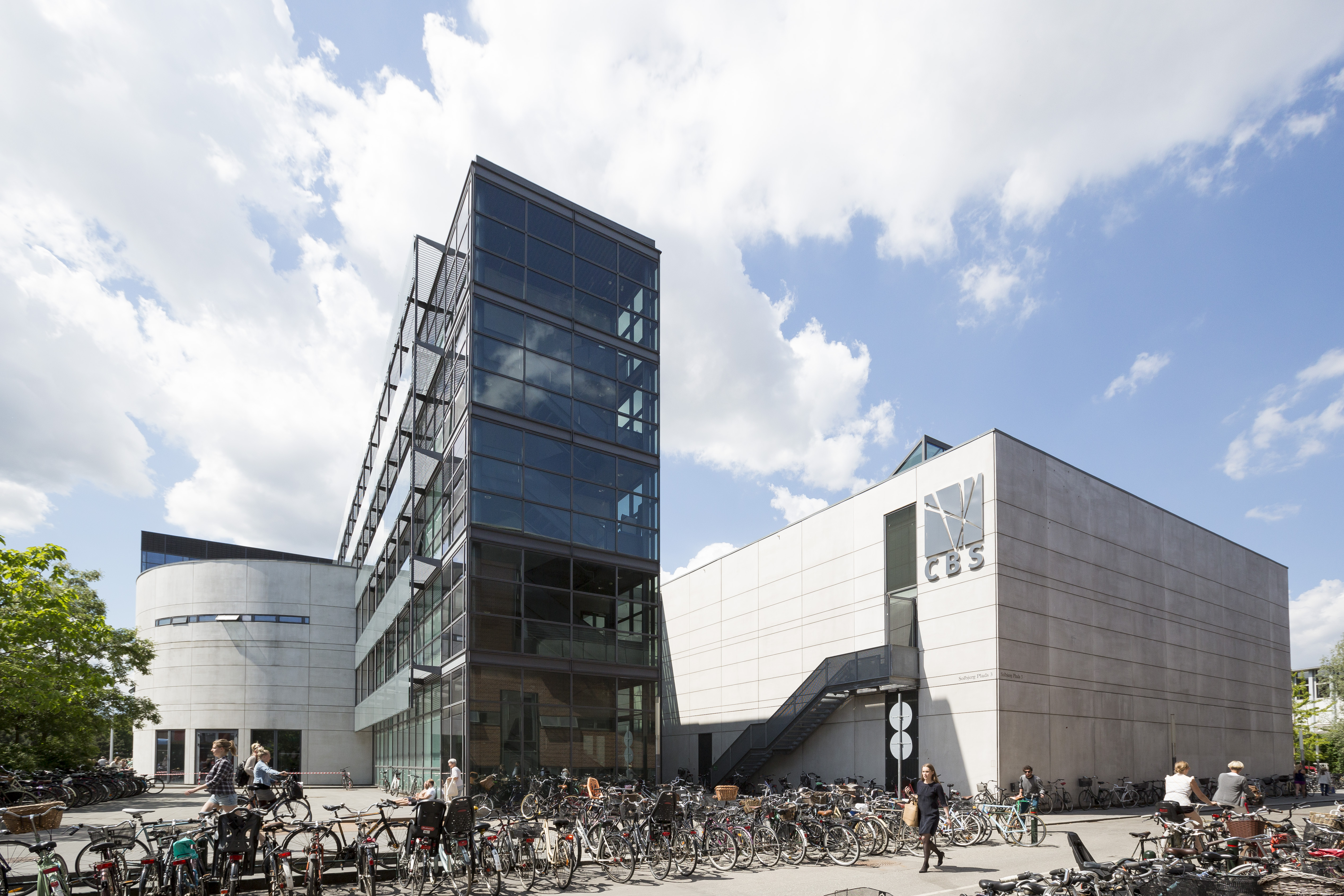
The Copenhagen Business School (CBS) is neither a traditional business school nor a broad university, but rather an institution combining elements from both worlds. CBS feels accountable for bringing knowledge and new ideas to companies and business organisations, to the next generation of business leaders, and to society as a whole and is open-minded towards innovative and entrepreneurial business models, sustainable organisational forms and economic practices within the perspective of responsible management and leadership. To enhance interdisciplinary collaboration the CBS established the Business in Society Platforms, thus covering topics of firm competitiveness, entrepreneurship, maritime industry, public-private business and sustainability. The World-Class Research Environments (WCRE) Initiative was started to foster research environments of excellence in defined fields.
Nottingham University Business School, ICCSR
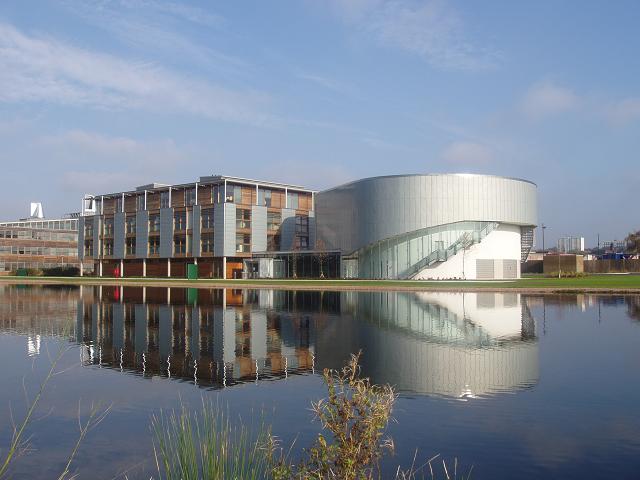
The ICCSR was founded in 2002 with the aim of leading CSR research and teaching. These core activities have grown in scope and scale over the years and the ICCSR now provides two highly regarded specialist taught programmes in CSR (an MSc in CSR and an MBA in CSR) in addition to supervising specialist research degrees in CSR. ICCSR staff have led a wide range of research activities and projects and ICCSR publications have made a significant contribution to the academic literature in this area and to the current understanding of CSR. Currently staff research interests include Socially Responsible Investment, Corporate Community Involvement, Social Reporting, CSR Reporting and Diversity, CSR Education and CSR in Asia.
Sokoine University of Agriculture, Institute for Development Studies
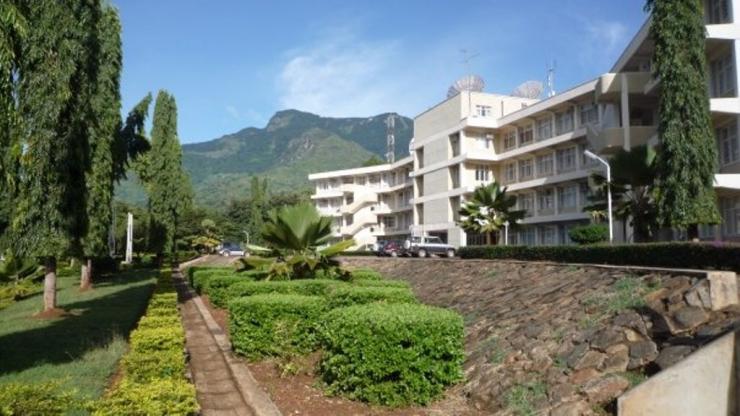
The Development Studies Institute (DSI) at the Sokoine University of Agriculture (SUA) in Tanzania was set up when the SUA was established in 1984, but the history of Development Studies at SUA goes even back to 1969 when interdisciplinary courses were first introduced at the University College Dar es Salaam of the then University of East Africa. The overall objective of the DSI is to address challenges of development by employing a multidisciplinary approach. The Institute plays a distinctive role in SUA as an integrative institute by focusing on action-oriented research programmes and problem-solving activities.
Central European University
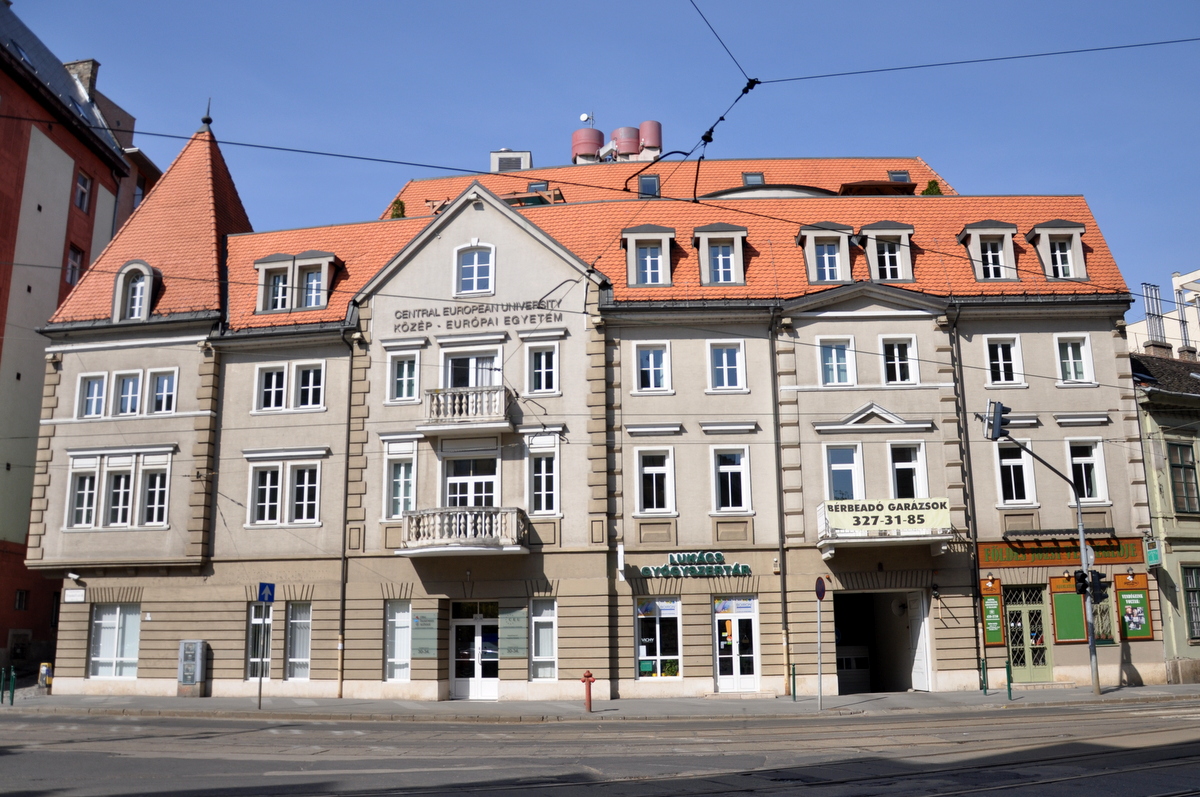
Central European University is a graduate-level “crossroads” university where faculty and students from more than 100 countries come to engage in interdisciplinary education, pursue advanced scholarship, and address some of society’s most vexing problems.
With approximately 1,400 students and 370 faculty members from more than 130 countries, the Central European University is one of the most international universities worldwide. It offers English-language Master’s and doctoral programs in the social sciences, the humanities, law, management and public policy and also offers several exchange programs. CEU has developed a distinct academic and intellectual focus, combining the comparative study of the region’s historical, cultural, and social diversity with a global perspective on good governance, sustainable development and social transformation.
Saarland University, Center for Evaluation
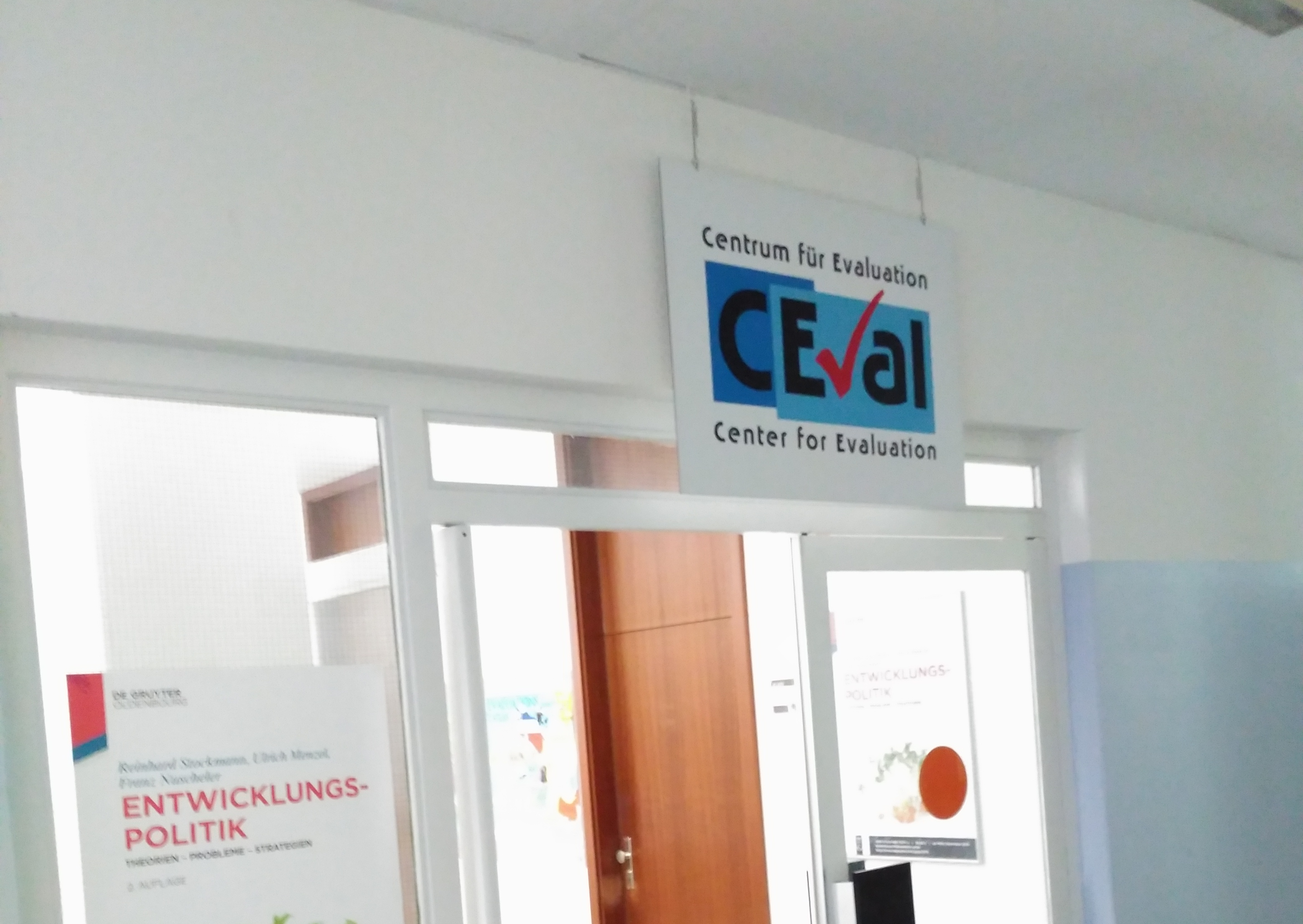
The Center for Evaluation (CEval) is a research institute in the field of evaluation within the University of the Saarland’s Faculty of Applied Human Sciences. Unique in Germany, CEval constitutes an educational, research and service institute with an integrated range of activities. It concentrates on three main specialist areas of work – Environmental research and environmental communication, Education and the labour market and Development cooperation -, which are clearly connected to each other.
Using appropriate management tools including particular processes of evaluation and impact analysis, CEval aims to be successful in the long term and achieve lasting impacts and sustainability. It thus undertakes the task of working on the advancement of evaluation theories and methods that meet global challenges and satisfy the sustainability-oriented demands which are placed on politics. This includes the further development of theories and methods that span across policy areas, in order to contribute to the integration of interdependent political fields.
Aalto University

Aalto University‘s core fields of research and teaching are science, technology, business and arts. Aalto University works towards a better world through top-quality research, interdisciplinary collaboration, pioneering education, surpassing traditional boundaries, and enabling renewal. Its global mission is to contribute a better world and the national mission is to support Finland’s success and contribute to Finnish society, by promoting the welfare of its people.
Aalto University consists of six schools, of which the School of Business is contributing in the GLOBAL VALUE project. The School of Business is the first Nordic business school to receive all three of the field’s international accreditations (AACSB, AMBA and EQUIS). The Corporate Environmental and Social Responsibility research group (CESR) that is located at the Department of Management Studies of Aalto School of Business has over 20 years of tradition in contributing international multi-partner research projects on business models and practices that enhance sustainable development.
Sustainalytics
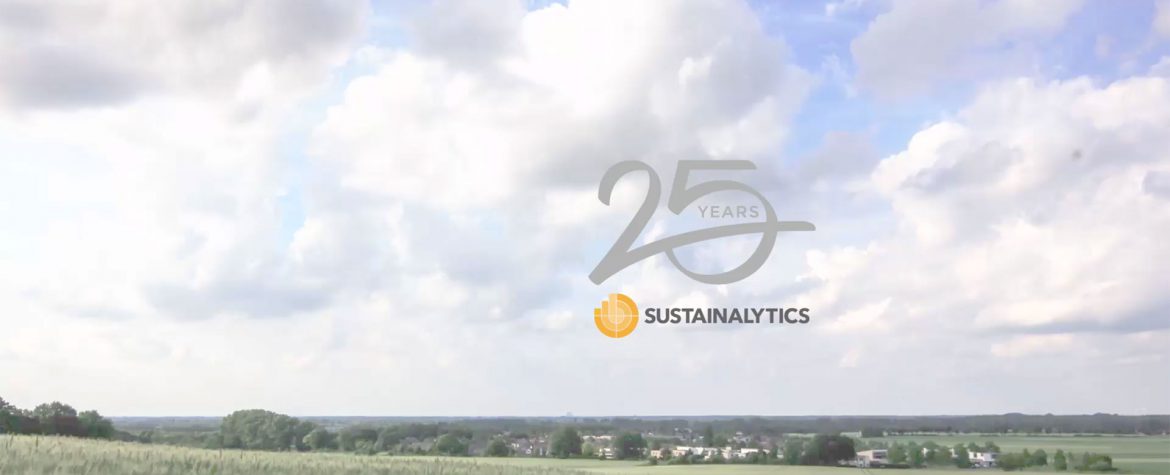
Sustainalytics is an award-winning global responsible investment research firm specialized in environmental, social and governance (ESG) research and analysis. The firm offers global perspectives and solutions that are underpinned by local expertise, serving both values-based and mainstream investors that integrate ESG information and assessments into their investment decisions. It has a wealth of experience in working together with a diverse set of clients and demands to fully understand the specific needs of institutional clients and investment issues around Environmental, Social and Governance (ESG) topics. Offering a wide range of products and services combined with a dedicated and experienced staff, Sustainalytics accomplishes a full service concept.
Ludwig Boltzmann Institute of Human Rights
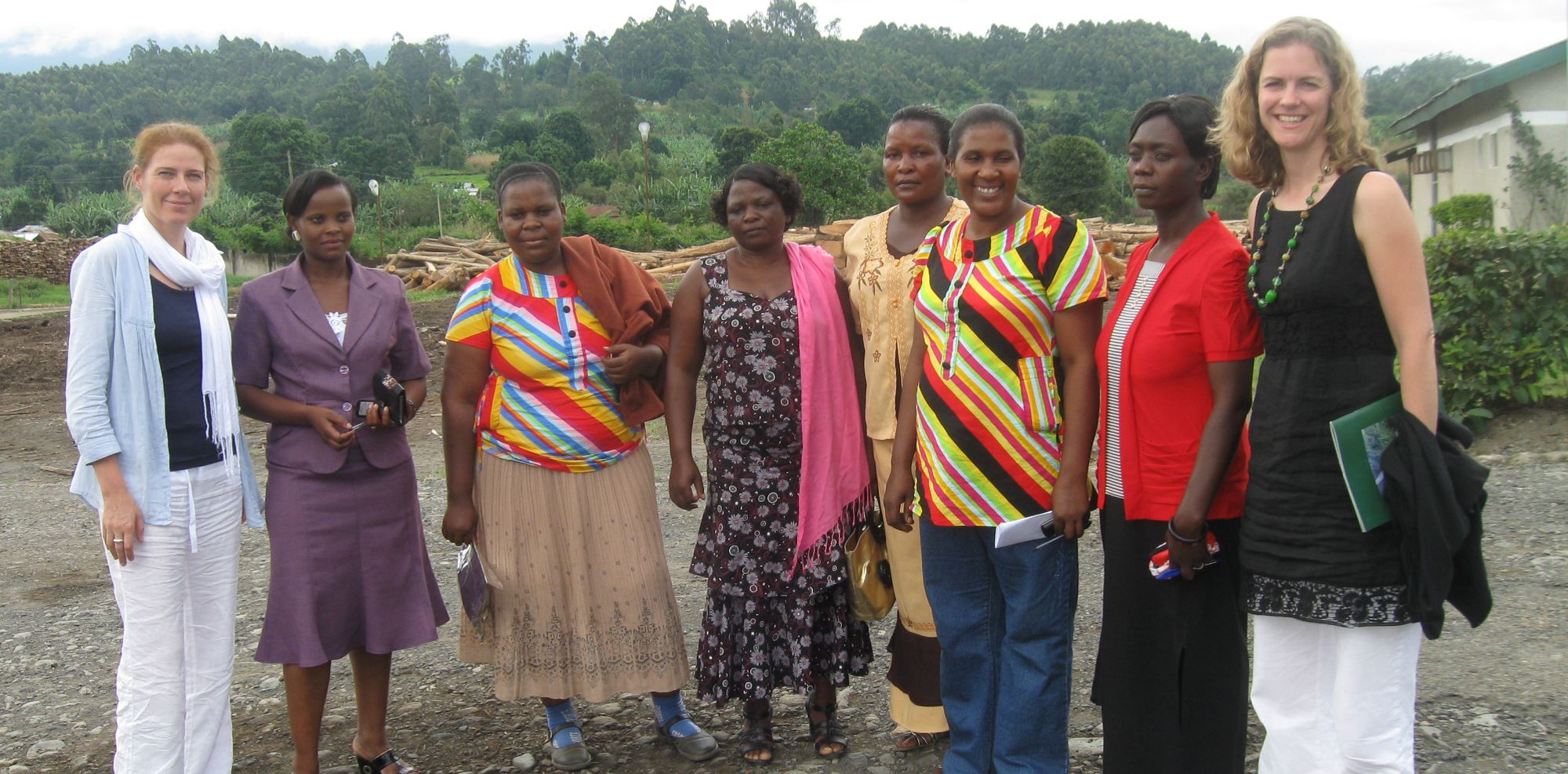
The Ludwig Boltzmann Institute of Human Rights (BIM) was established in 1992 as independent research centre with the aim of contributing to the scientific discourse of human rights at the national, European and global level. The Ludwig Boltzmann Institute of Human Rights (BIM) deals with a broad range of human rights topics, including Human Dignity and Public Security, European Neighbourhood and Integration Policy and Human Rights Education.
Their work relates theory with practice including rudiments from civil, political, economic, social, cultural and collective human rights in terms of counselling, implementation, monitoring, education and university teaching. Furthermore, the BIM Staff offers several university courses, for example at the Faculty of Law at the University of Vienna and serves as a platform’s centre of communication and coordination for the research platform Human Rights in the European Context of the University of Vienna.
BRAC Bangladesh
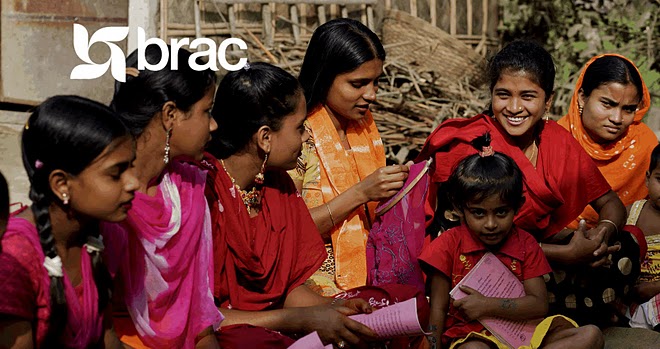
The Bangladesh Rural Advancement Committee (BRAC) is a development organisation dedicated to alleviate poverty by empowering the poor, and helping them to bring about positive changes in their lives by creating opportunities for the poor. Started out as a limited relief operation in 1972 in a remote village of Bangladesh, BRAC has since turned into the largest development organisation in the world. Founded in 1972, BRAC reaches an estimated 135 million people through spreading antipoverty solutions to 10 other developing countries beside Bangladesh. BRAC attempts tackling poverty on multiple fronts such as Education, Health, Nutrition and Population, Human Rights, Agriculture and Food Security, Microfinance, Migration, Hygiene or Disaster, Environment and Climate Change, to name only some. BRAC’s priorities are women, grassroots empowerment, health and education, empowering farmers, inclusive financial services and self-sustaining solutions.
![]()
Impressum
André Martinuzzi, Norma Schönherr, Adele Tharani & Patricia Schindler
© 2017 Institute for Managing Sustainability │ Vienna University of Economics & Business
contact@global-value.eu
www.global-value.eu/toolkit
![]()
Disclaimer
GLOBAL VALUE is co-funded by the European Union Seventh Framework Programme under grant agreement no 613295. Sole responsibility for the project lies with the participating organisations. The European Commission is not responsible for the use that may be made of any material arising from this project.
Use of this site is subject to the Terms & Conditions of Use
